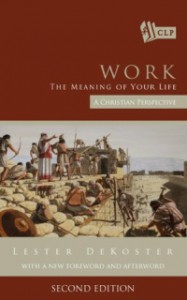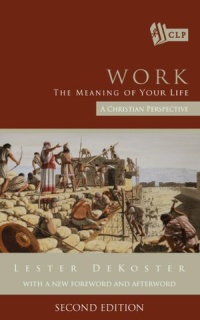 I recently pondered what might come of the global economy if we were to to put God at the forefront of our motives and decision-making. The question came as a reaction to Tim Keller, whose recent book calls on Christians to challenge their views about work. By re-orienting our work to be a “servant” instead of a “lord,” Keller argues, we will actually find more fulfillment in the work that we do.
I recently pondered what might come of the global economy if we were to to put God at the forefront of our motives and decision-making. The question came as a reaction to Tim Keller, whose recent book calls on Christians to challenge their views about work. By re-orienting our work to be a “servant” instead of a “lord,” Keller argues, we will actually find more fulfillment in the work that we do.
Keller’s main point in the video I discussed was to caution against our human preferences for idol carving. Although this is a valuable word of warning, it’s also worth noting that in a more basic sense, our work is already service.
The extent to which this is practically true will depend on a variety of factors — the type of work we’re doing, the type of economic system we’re engaged in, the levels of cronyism, artificiality, and misinformation in the economic environment that surrounds us — but by and large, our work is concentrated on actually fulfilling the particular needs of particular persons. As Lester DeKoster writes in Work: The Meaning of Your Life: “Work is the form in which we make ourselves useful to others.”
Through this understanding, perhaps a clearer way of expressing things is that work is less about whether we’re serving and more about who we’re serving. At the core, this simply rehashes Keller’s original point, prodding us to ask ourselves whether we’re serving God or something else (i.e. anything else). But beyond this, in those rougher, hazier areas of human discernment, it also empowers us to ask some other productive questions.
For example, in examining the ways in which trade and exchange impact human relationships across broader society, DeKoster contrasts life in the African bush with life in Western civilization, noting that the primary difference lies in work: “The bush people have to do everything for themselves. Civilization is sharing in the work of others.”
As DeKoster goes on to explain:
Our working puts us in the service of others; the civilization that work creates puts others in the service of ourselves. Thus, work restores the broken family of humankind… Through work that serves others, we also serve God, and he in exchange weaves the work of others into a culture that makes our work easier and more rewarding…As seed multiplies into a harvest under the wings of the Holy Spirit, so work multiplies into a civilization under the intricate hand of the same Spirit.
Whereas remarks like Keller’s are helpful in getting us back to the basic step of working in service of the Lord of Lords, DeKoster prods us further, challenging us to consider the broader implications of a world in which our service looks upward and outward. Such a reorientation will not stop at transforming our basic spiritual commitments, leading us onward toward a transformation of civilization at large—social, economic, and spiritual.
Today, we are seeing this truth play out in bold and mysterious ways. If globalization has demonstrated anything, it’s the transformational power of expansive human collaboration and cooperation—the transcendent, liberating experience of diverse and interdependent human service. The more freedom and opportunity people have been given to orient their work toward God and neighbor, the more we have seen them rise from poverty in all its forms.
Yet amid such a vivid display, there is still plenty of room for growth. As the winning rhetoric of the recent election demonstrates, our discussions on everything from farm subsidies to auto bailouts to union insulationism to company off-shoring are still plagued by a protectionist ethos that seeks to distort the very essence of work for the mere purposes of personal comfort and self-satisfaction. Instead of asking how we might elevate our work to more accurately and comprehensively meet real and existing human needs, we continue to glorify work as an idol to ourselves.
As Keller and DeKoster remind us, we must fight this temptation with diligence, praying for God to redeem our work toward His purposes. When we do, we can expect the seeds we plant to “multiply under the wings of the Holy Spirit,” as DeKoster puts it, building culture and civilization as God uses us to “restore the broken family of humankind.”
—
Purchase Work: The Meaning of Your Life.
To join the On Call in Culture community, like us on Facebook or follow us on Twitter.

